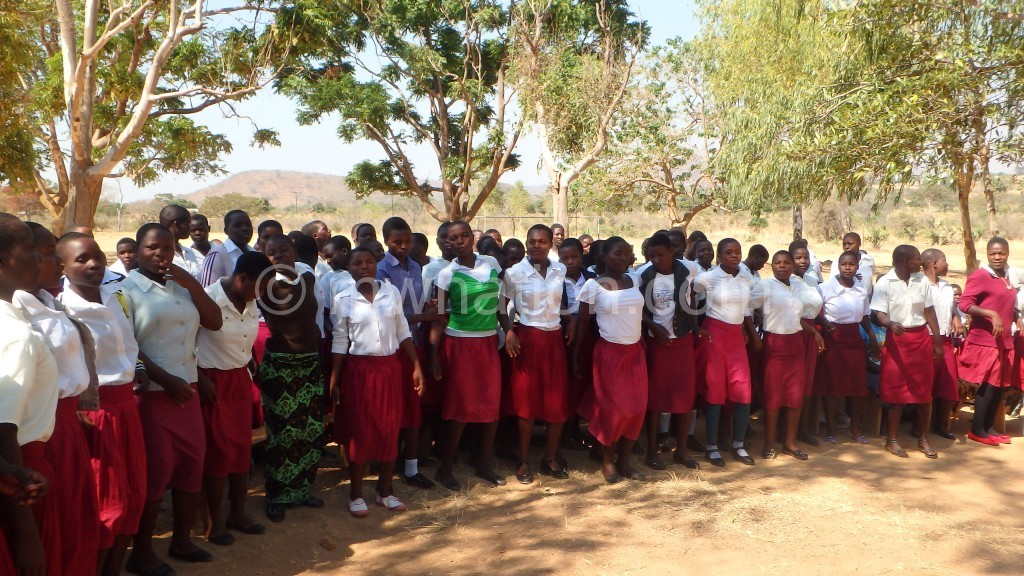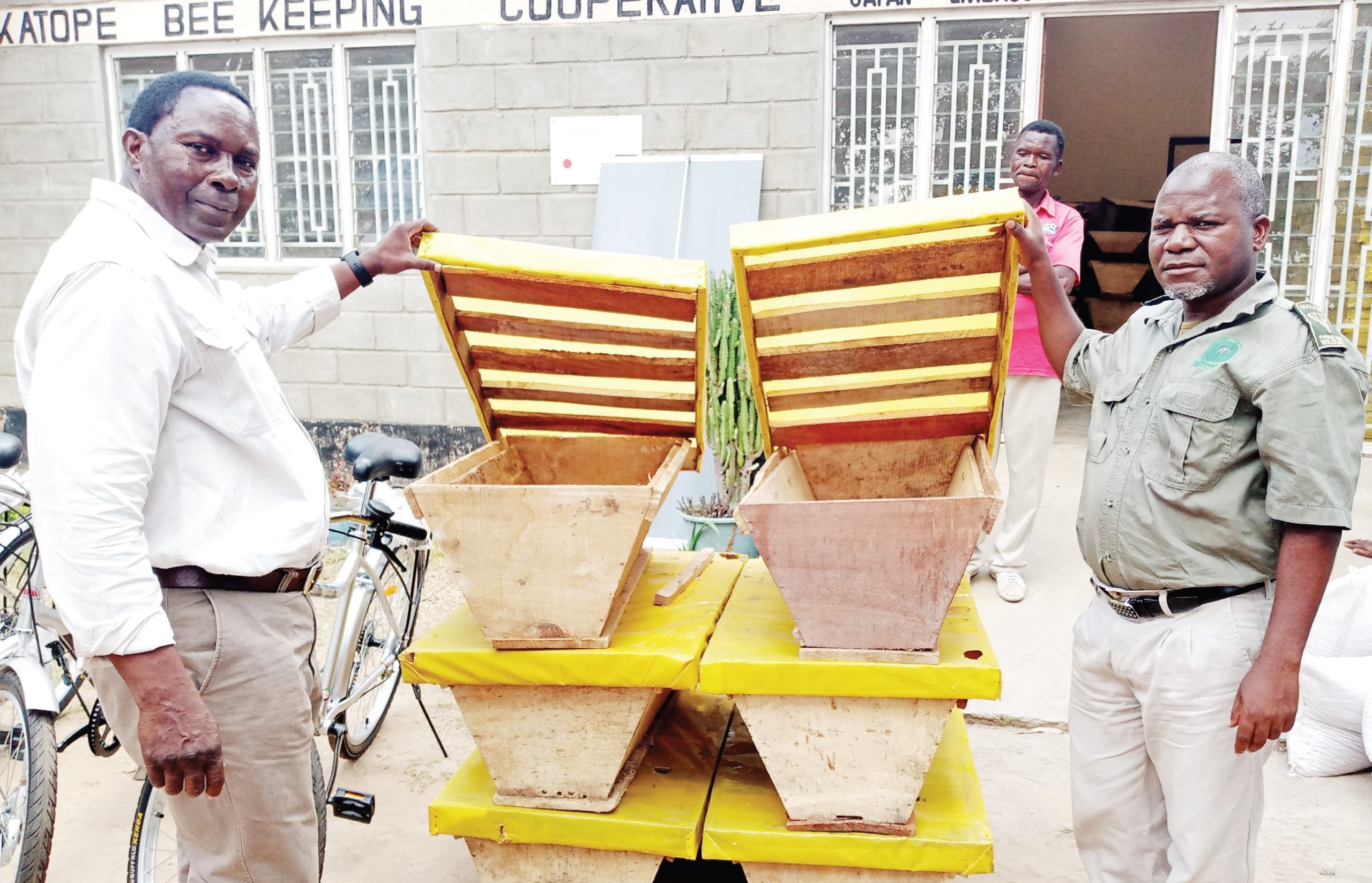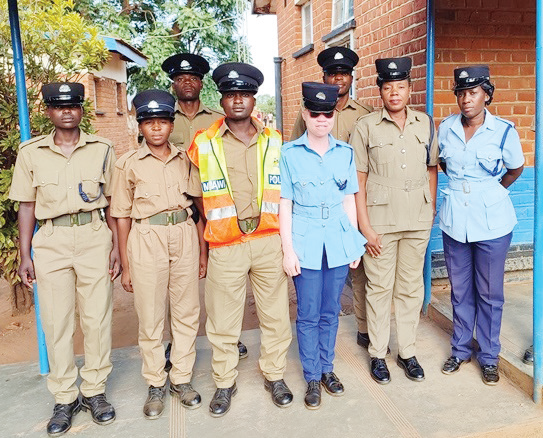Sailing Chitipa youths beyond secondary education
Milliam Kaonga has been raised in a poor household by her single mother in the remote area of Namabi Village, Traditional Authority (T/A) Mwaulambia, about 30 kilometres south of Chitipa Boma, but that does not deter the 13-year-old from dreaming about becoming a nurse.
Lacking almost everything that matters, with the exception of life and free primary education, the ambitious Milliam has fought battles of learning in poverty all the way to Standard 8.
It is 2013. The Primary School Leaving Certificate examinations have been released. Milliam’s hard work is rewarded with a place at the Roman Catholic’s Kaseye Girls Secondary School and another at government’s Chitipa Secondary School.
Her family cannot afford basic necessities and school fees for her—K225 000 per year at Kaseye or K105 000 per year at Chitipa.
Her mother gambles. She sells a goat at K15 000. She gives Milliam K5 000 and nothing else, and lets her walk 30km to Chitipa Secondary School where the fees is ‘cheaper’.
She keeps the remaining K10 000 and fancies starting a small business so that as it grows, she pays school fees for her promising daughter.
But on second thoughts, she feels this gamble is too much. So she aborts the plan and keeps the money.
Sooner, Milliam is chased from school due to a fees balance, forcing her mother to surrender the remaining K10 000 which is not even enough to keep her at school. And she is sent back home again.
She will be the fifth child of the family to drop out of secondary school before Form Three due to lack of school fees. The last born already sees the same route.
Milliam’s situation is a reality that many ambitious young people are trapped in here. Poverty, single parenthood, lack of school fees and social support is driving many students out of secondary school. The situation is proving a recipe for early marriages and poverty.
Deputy head teacher for Chitipa Secondary School, Clement Nyirenda, expressed worry over the number of young people dropping out of school in the district because of lack of fees, saying the problem is shattering the dreams of many a youth.
He said about 100 out of 500 students at the school are on sponsorship, but demand remains insatiable, stressing that government sponsors only 40. Withdrawal of a bursary programme by the National Aids Commission has worsened the situation.
“We have many incidences where students who have been selected to start Form One here and come with literally nothing. No school fees, clothes, beddings, books, groceries or pocket money.
“They come barefoot at the school gate and tell us they have been selected to start school here. We are sometimes forced as teachers to contribute money from our salaries to assist them because of their desire to get education,” said Nyirenda.
He added that his school is better off having as many as 100 students sponsored, but the problem is catastrophic in others.
Poverty and hunger, Nyirenda said, is forcing many men to abandon their families and search for jobs in neighbouring Tanzania and Zambia, but fail to come back, out of shame, when they fail to realise their dream.
“Towards the end of every term, we receive dropout letters of up to four students a week, telling us that they are not coming next term. It is all due to lack of fees. To many, this becomes the end of their academic life as they forever do not come back,” he said.
Chitipa District Education Network coordinator Sydney Simwaka said school completion is a big problem in the district owing to dwindling education standards, early marriages, lack of parental care, teen pregnancies and child trafficking to neighbouring Tanzania and Zambia.
He says while it is even difficult to find ready data for tracking school dropout rates at secondary level, the problem starts at primary school where Chitipa just moved to number 33 out of 34 education districts. The district anchored the table in 2014.
“I can give an example of Kabanje Primary School in Chisenga Zone where, after enrolling 31 girls in Standard One six years ago, it has only two girls in Standard Seven this year. This makes it even doubtful if any will reach Standard Eight and we cannot even start talking of secondary school.
“This year, we had a case at Mulembe cluster centre where, after registering 40 girls for Primary School Leaving Certificate examinations, only 31 sat for exams. This means nine dropped out within three months. You cannot talk of secondary school where school fees are scarce,” said Simwaka.
Fortunately for Milliam she met Peachtree Chitipa Church who started paying her school fees after spending two terms at home. She is now in Form Three and the future looks bright once again.
Peachtree Chitipa programmes facilitator Fidelis Kambalame said the church is striving to nurture leadership potential of young people in the district by, among others, building skill levels and paying school fees for needy students in both secondary and tertiary education.
“We want to nurture future leaders who can contribute to the socio-economic status of Chitipa and we feel this can be achieved through giving them education through sponsorship,” he said.
Milliam is among 230 students in 22 secondary schools in Chitipa which the church is paying school fees for, currently at K18 million annually. It is also sponsoring 49 technical college students at K7 million annually.
Some K24 million is spent on 19 students annually in both public and private universities including Malawi University of Science and Technology, Kamuzu College of Nursing, University of Livingstonia, Malawi Assembles of God University and Development Aid from People to People (Dapp) teacher training colleges. Twenty-six more are on the waiting list this year.
Kambalame said the church’s initiative is also emphasising the youth to give back to the community; hence, every sponsored student is required to plant 200 trees per year. Over 50 000 trees have been planted so far in this way.
“Every Wednesday, we go to do charity work to a disadvantaged home like that of widows. We want these youths to work in Chitipa when they graduate as a way of giving back to the community,” he said.
The church is also drilling boreholes and providing latest academic books and mattresses, among other necessities, in all schools and colleges accommodating its sponsored students.
Kambalame, however, said access to information is another serious challenge hindering students who have passed well to proceed to the universities, saying they lack career guidance and how and when to apply for public universities.
Talking to young people of Chitipa gives a feel of a huge potential and burning desire for them to achieve academic potential. As lack of school proves a hindering block, a need for more support is inevitable.n





